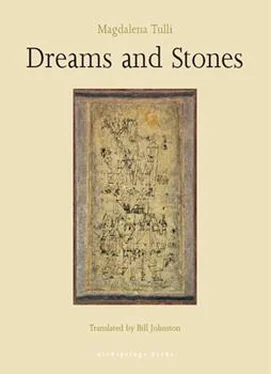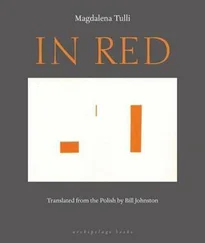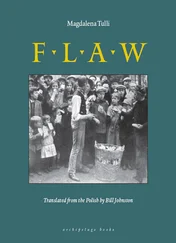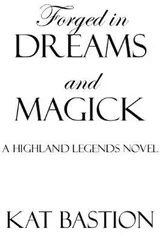Within the frame there is no room for what the industrialists never need: rundown stores with no sign or window display, selling matches, shoelaces and cheap soap: things none of those fat genial fellows would ever dream of buying. The anemic storekeepers are doomed to inevitable bankruptcy; there is no hope for the tailors with their many children, masters of the art of turning well-worn garments, nor for the cobblers who can take a pair of boots worn to shreds and turn them into one brand-new shoe. Spurned by the elegant public, they are starving. Their brilliant work is known only to those who cannot afford it. The capricious eye seeks out gleaming signboards and large glass windowpanes behind which are flaunted all possible models, patterns and styles that can be thought up in this city of endless entertainment. Here no frill bears the weight of final things and final things are not anticipated at all. Even those who jump off the bridge into the river do so for banal and laughable reasons.
Can it be said then of this feather-light city that of its buildings not one stone was left upon a stone? Rather they crumbled to the four winds. The latest models, patterns and styles which the world had doted on simply evaporated. They were destroyed at least to the extent that even in recollection they proved strikingly unfashionable. Yet they were destroyed — like everything in the world — only partially. For what is fashion? That which makes a hat with a broad brim and adorned with artificial fruit one day start to look ridiculous, so it becomes clear that it must be replaced with a tiny toque. For a moment everyone believes sincerely that toques will always remain what they are: appropriate in every regard.
The stage of the memory is equipped with panoramas rolled up beneath the ceiling, on which there is a permanent record of the transitory configurations of shop signs, monuments and municipal gardens. In the memory’s submerged theater the empty rows of seats are overgrown with algae. In the standing water everything has its place. The city of toques in window displays becomes completely covered over when all of a sudden from the ceiling there falls the canvas of the next panorama, unrolling as it falls and painted with piles of bricks. The toques arouse pity and it becomes obvious that they must be replaced with headscarves tied beneath the chin.
Behind, yet another panorama is hidden, the one for which large hats with artificial fruit are appropriate: the city of shop signs in two languages, a city glistening with muddy puddles and smelling of must, animals and blood. Against its background there rises a perpetual fog, while a procession moves forward bearing crosses and banners; Cossack horsemen in fur hats raise their swords, the hand of a thief removes a wallet from someone’s pocket and there can be heard the whistle of bullets frozen in midair and the whinnying of horses rearing on their hind legs. After the rain little boys, the illegitimate sons of cooks and firemen, sail paper boats on the frothing streams in the gutters. In this city two train stations stand on either side of the river, each sending forth its own separate railroad network. Between these two rail networks a connecting line is unthinkable. The only possible connection turns out to be a horse-drawn tram that shuttles between the two stations across the entire city, crossing the bridge that spans the river.
This city is built of a twofold kind of imagination to which the two rail networks correspond. One extends toward Moscow and St. Petersburg, the other toward Paris and Lausanne. They are unable to pass beyond the city gates, which does not prevent them from entwining the whole world with their networks — spreading farther every year — and acquiring locomotive sheds, warehouses and provincial garrisons in which it is possible to embezzle the regimental funds and then shoot oneself in the head.
In this city there live sand-diggers who seek consolation at the pub on the corner, and clerks in threadbare frock coats who quail beneath the gaze of their superiors and who have no future in their offices since all the best positions are permanently occupied by jovial old men or cynical young swells; bearded Jews, blacksmiths and carpenters from failing shops, self-aggrandizing engineers, and coughing poets devoid of inspiration. They are passed on the street by carriages containing disdainful generals in white uniforms embroidered with gold thread, and by the steeds of cheerful lieutenants separated by hundreds of versts from their mothers and sisters, uncertain whether the mud beneath their horses’ hooves can be real in a place that is so accidental and in which the only self-evident thing is the garrison.
The area enclosed by the gates is rather cramped. To cross from one end to the other takes half an hour, forty-five minutes in bad weather; the trip leaves no illusions. Certain inhabitants of the city, sick of its narrow horizons, attempted to perish in flames or in snows. Others, equally distressed, decided that it was their duty to live there and that death was a kind of layoff. Both the former and the latter, from the cradle to the grave, when they reached for something with their hand would encounter empty space and when they took a step would bump into a wall. The first perished the way they wanted — in snows or in flames. The second died in unaired rooms, their bedside tables littered with tiny bottles containing bitter medicines, leeches behind their ears. But death could not soothe their pain.
Both the former and the latter ultimately came to rest in caskets; the caskets crumbled to dust deep beneath the earth yet the pain remained on the surface: in stuffy bedrooms, in pubs on the corner, in sofas on which they used to sit, in drawers where their letters were kept. Eventually the day came when the sofas were chopped up for firewood; a stray shell released the letters from their drawers. Paper turned to ashes, windowpanes shattered, door frames and tiled stoves were smashed to pieces. But this too failed to stop the pain. For pain does not belong to those who experience it but rather they belong to it. Taking into its possession successive tradesmen, clerks and poets, it fills all interiors to the very ceiling.
Many tried to flee from it, surreptitiously taking advantage of the fact that every unaired room contains broad plains over which great clouds sail past, and endless tracts across which coaches drawn by galloping horses deliver documents that bear a two-headed eagle on their seals. Certain inhabitants of this city desired space so badly that they abandoned the city forever. They were sucked in by the wide-open spaces of boundless fields, which in order to exist needed the tracks of the railroad that spread from year to year, from station to station, to the very end, where it transpired there was no way back. They began to wander aimlessly about St. Petersburg, great in its golden frame, where beneath the shiny varnish it is dark in the winter for as much as twenty hours a day. Or Moscow, where the streets were paved with wood that may have been real or may have been made from lacquered building blocks. They even traveled as far as Tula, which was tall and had a brass tap to let out boiling water, and also to Omsk and Tomsk, where in the summertime they float wood down the river and in winter they are chilled to the marrow. And to Astrakhan — that storehouse of ice and skins — where caviar is eaten by the spoonful and champagne drunk straight from the bottle. At the feet of a good few of these lost travelers, somewhere at the meeting point of steppe and sea there opened up a dark abyss by the name of Odessa, filled with sailors, bandits, officers and femmes fatales, washed over beyond salvation by waves of epidemics and filled forever with the echo of shots. Some did not stop till Baku, where blood flows like rainwater in the streets, or Khabarovsk, where White Army soldiers without boots lie on the white snow. Or Vladivostok, that last station in the world, toward which tracks that previously ran straight as an arrow begin to describe the first loop of a spiral. The next loop rests on Harbin, where Chinese in felt shoes wade through snowdrifts. Subsequent loops are no longer visible; one has only to hold on ever more tightly on the curves. Saved or lost, people sucked into the vortex were swept into the interior of memories and began to live as the recollections of others, endlessly repeating their former gestures. Younger than they were in their youth, they looked from their nightstands through eyes that saw nothing at all: neither the space nor the flames.
Читать дальше












